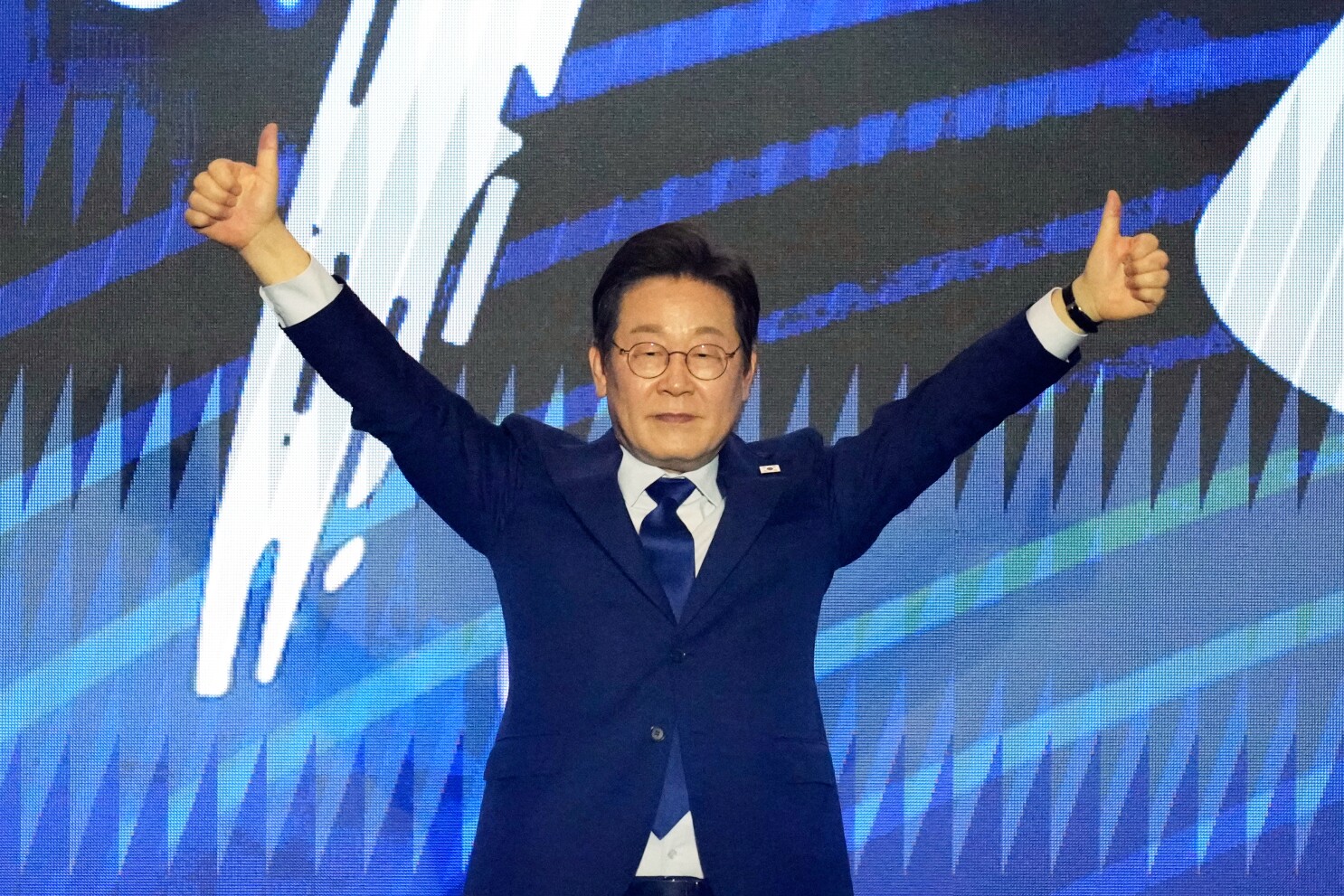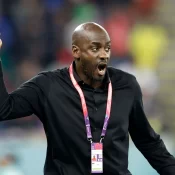
Martial law in South Korea helped put Lee Jae-myung back on track to become president
The liberal South Korean politician who is favored to lead the nation in the future, Lee Jae-myung, has surmounted a knife attack, martial law, and criminal accusations on his surprising return to the president.
In most polls, Lee, the Democratic Party’s nominee, is far ahead of his conservative rivals in the June 3 snap election, which was called after Yoon Suk Yeol was ousted from government for his brief effort to impose martial law in December.
Lee’s extraordinary path from child laborer to human rights attorney to governor renowned for his response to COVID-19 reached its pinnacle when he lost the president by a slim margin to Yoon, who subsequently accused Lee of obstruction in order to defend the martial law order that resulted in Yoon’s removal.
While negotiating with U.S. President Donald Trump’s administration on issues ranging from tariffs to the cost of hosting American troops in the nation, Lee, 61, who one adviser referred to as a “gladiator in a suit,” would have to calm polarized politics and address growing economic concerns if elected.
Lee is thought to be less hardline than Yoon on North Korea, which might help him support any attempts by Trump to engage Kim Jong Un, the leader of the country. His promises to strengthen relations with Russia and China, however, might cause him to clash with Washington.
Lee’s eligibility for president was endangered by legal charges, even though several courts dismissed them. However, his run was made possible by important rulings being postponed until after the vote.
Lee scaled the walls of the National Assembly to get by security cordons that Yoon had ordered in place during his six-hour martial law on December 3. In order to stop MPs from being arrested, he encouraged viewers to attend parliament and stage a demonstration while livestreaming his exploit.
He subsequently told Reuters that he was committed to eliminating the situation, comparing it to a “virus” that had infected the South Korean system.
“We have to focus on removing the virus,” he added. “With proper, rapid treatment, we will recover, and through the process, our nation and democracy will become even stronger.”
A BASE START
Born into a poor farming family in a secluded mountain community in the southeast of the nation, Lee spent his early years working in chemical plants. He claims that the event, which caused him to have a deformed limb and hearing loss, explains why he is so focused on economic equality.
After practicing labor law and human rights, he entered politics and was elected mayor of Seongnam, which is south of Seoul, in 2010. He placed third in the 2017 DP presidential primary, aiming for greater position following the resignation and impeachment of conservative Park Geun-hye. Lee was elected governor of Gyeonggi-do, the most populous province in South Korea, the following year.
His outsider status during the 2022 presidential campaign was first seen as a disadvantage against more established rivals. But Lee’s populist stance propelled him to the top of the DP pack when many became disillusioned by exorbitant housing costs, limited job opportunities, and a series of corruption scandals.
Following Yoon’s narrowest-ever victory as president of South Korea, Lee emerged as the new president’s principal rival and DP leader in parliament.
In an uncommon act, Yoon declined to meet with Lee and later used the Constitutional Court’s rejection of his unprecedented parliamentary blockage as grounds for martial law, which led to his removal.
Lee was stabbed in the neck in January 2024 by a man who had said in his manifesto that he wished to prevent Lee from ever becoming president. For attempted murder, the attacker is currently receiving a 15-year term.
SCANDALS AND POSITIONS
Lee has toned down several of his policy statements in the run-up to this election.
His enthusiasm for ideas such as a universal basic income has waned in favor of more business-friendly initiatives including easing limitations on working hours, resolving inheritance taxes, and providing incentives to enterprises that maintain manufacture in South Korea.
Lee has been involved in a number of controversies and legal issues.
He received a sentence that might have prevented him from becoming president after being found guilty in November of breaking the election law. Although an appeals court reversed the conviction, the Supreme Court upheld it and mandated that Lee be sentenced by the lower court. Depending on how severe the sentence was, Lee would have been excluded from office, but the courts said they didn’t want to get involved and postponed it until after the election.
The accusation that Lee coerced a witness into perjury was dropped in November. The prosecution has appealed that decision.
Among his other cases are one about a $1 billion real estate development scandal and another with a purported plan to exploit an underwear firm to send money to North Korea and arrange a trip to Pyongyang while he was a regional governor.
All Categories
Recent Posts
Tags
+13162306000
zoneyetu@yahoo.com



